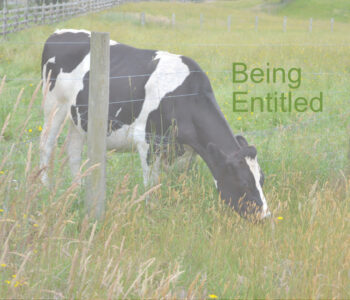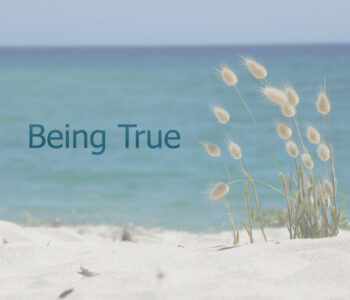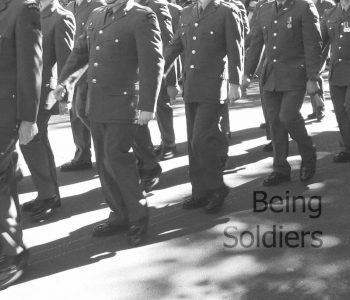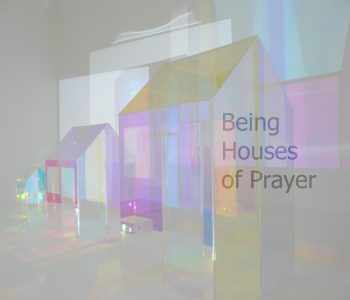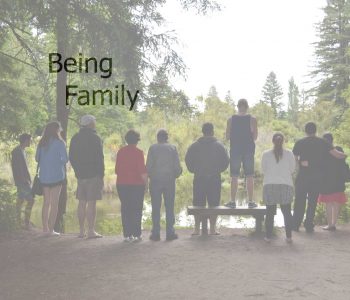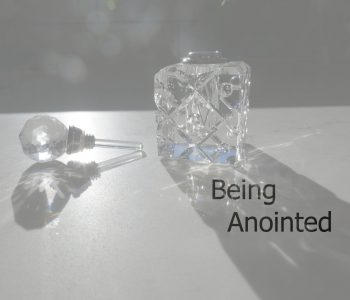 Being...
Being...
Being Strong and Free!
In Christian circles it is generally believed to refer to this woman being very good, righteous, subordinate, submissive and gentle; an example of moral excellence. “Virtuous” in English means to conform to moral and ethical principles; to be morally excellent, upright and chaste. However, this is not what the word in the original Hebrew means. It means almost the exact opposite of a submissive, gentle woman, and instead means one who is strong, forceful, powerful and warlike. The Jewish bible is a more correct translation, calling her a woman of valour instead of a woman of virtue.
The definition of the Hebrew word is: strength, power, might (especially warlike), ability, efficiency, wealth, force, army. This means that this woman mentioned in Proverbs is a force to be reckoned with! The word is most often translated as “army” and of the 243 occurrences of the word in the Bible, there are only four times that it is translated as “virtuous” and, oddly enough, all four occurrences refer to women (Ruth 3:11; Prov. 12:4; Prov. 31:10,29). Wycliffe originally translated this Hebrew word as “strong”: “Who shall find a strong woman?” But the translators for King James changed the word to “virtuous” and it has remained as “virtuous” in most translations of the Bible since.
The Translator’s Agenda
Was there perhaps an agenda behind translating this word as “virtuous” instead of “strong” or “powerful”? It certainly wouldn’t be the first time that translators of the Bible changed what the original text said to suit themselves and their own agenda. Remember that all of the translators of the KJV English Bible were males.
“Supposing women only had translated the Bible, from age to age, is there a likelihood that men would have rested content with the outcome? Therefore, our brothers have no good reason to complain if, while conceding that men have done the best they could alone, we assert that they did not do the best that could have been done. The work would have been of a much higher order had they first helped women to learn the sacred languages (instead of putting obstacles in their way), and then, have given them a place by their side on translations committees.” (Katharine Bushnell – “God’s Word to Women”).
When we look at the era that these men lived in, we see how suppressed and oppressed women were. They were not treated as equals of men, instead they were seen as the property of men and were considered inferior to them: “For centuries girls had been told and, if educated, [taught] that they were inferior. So by the time they became women, they would have acted as if they were inferior to men. The Church taught this and used the Bible to justify this belief. If men of God said that women were inferior it had to be true…. So two sections of society grew up to believe the same thing. Both men and women believed that women were inferior to men and that this was ordered by God. No change came with the Reformation. The protestant leader John Knox wrote: ‘Woman in her greatest perfection was made to serve and obey man.'” (http://www.historylearningsite.co.uk/women_in_tudor_england.htm).
So to have the Bible say that a woman who is strong, forceful and powerful is of great value, went against what the translators and King James believed, and what was taught in their religion and in their culture. To the translators of the day, a chaste, virtuous woman was acceptable, whereas a strong one was not; so “virtuous” was what they “translated” the word to mean.
From the fourteenth century on, when the word “virtuous” was used of a woman, it meant chastity. So there would have been no mistaking what was meant in the English Bible, but that is NOT what the original text either said or meant. Some scholars have said that the word in Hebrew means “valiant”, “forceful” and “mighty” due to the way the word is used in the original scriptures. It is almost exclusively used to refer to warfare.
Just to be clear, the strength, wisdom and power that I am talking about are not necessarily the human, natural variety. I’m not talking about a woman who is domineering and overbearing. And I’m not talking about a woman who has a strong personality and exerts power over others. There are many “strong” characters, both men and women, who use their “strength of character” for their own benefit and that is not a good thing. That kind of strength needs to be broken because it is the strength of a person’s own Self, and not the strength of the Spirit of Christ. I am talking about spiritual characteristics: the spiritual strength, spiritual wisdom, spiritual authority, and spiritual power that come from only one Source… Christ’s Life in us.
We can be very weak in ourselves, and yet be very strong in Christ. God’s way is for Him to be our Strength in spite of our weakness, and our Wisdom in spite of our foolishness (1 Cor. 1:25; 2 Cor. 12:9,10). If we do not appreciate, accept, or respect this Strength, Wisdom, Authority and Power in another, regardless of gender, then we are disrespecting and even rejecting Christ and His Strength, Wisdom, Authority and Power. So this is an important issue to resolve.
Many still believe (whether consciously or subconsciously) that women are inferior to men, thus keeping both women and men in bondage, all the while believing this to be Biblical when it is not. This belief is very deeply rooted in our “Christian” culture. I venture to suggest that there is not one woman (especially within religious circles) who at some point in her life has not experienced discrimination and prejudice because of her gender. It is little wonder that many women develop either an inferiority complex or become defiant. This prejudice is something that many of us deal with every day. Men do not experience this discrimination in the way women do; for women it is commonplace.
Paul clearly told the Galatians, “In Him (Christ) the distinctions between Jew and Gentile, slave and free man, male and female, disappear; you are all one in Christ Jesus.” (Gal. 3:28). It can’t be put much clearer than that! That was a radical thing for Paul to say in the day and culture he lived in, and obviously he was not talking about physical distinctions and differences! Even aside from what the Bible says, it only takes a little common-sense to realise that we are co-dependent: men cannot do without women, and women cannot do without men. Maybe it is about time we acknowledged and appreciated that!
“Christ in resurrection is the firstborn of a new humanity in which there is neither Jew nor Greek, circumcision nor uncircumcision, etc… In the realm of Christ; in the realm of the Holy Spirit; in the realm of the One Body and the One Life they have no standing. They are great realities in the natural realm and may constitute difficulties, but the Spirit of Christ forbids that they govern attitudes and prejudices… In Christ there is a new creation, where there cannot be this and that of inimical differences and conflicting natures. There is no way through this situation, the only way is above it, ascendency over it… Jews and Gentiles, and all others [including male and female], as such, cease to be. They have disappeared when the Body of Christ comes into view – ‘there can be neither‘; not ‘there are both‘.” (T. Austin-Sparks, The Stewardship of the Mystery – Chapter 3).
Any man who truly loves a woman wants to see her reach her full potential and doesn’t want to inhibit or suppress her in any way. Unfortunately, along with some of the equalities that women have gained in our society, there can be a tendency to put men down and to not appreciate men’s strengths and differences. This simply will not do. We are equal in the sight of God, and it would be good if we were equal in the sight of one another also! That really should go without saying.
Some women are weak, and so are some men.
Some women are very sensitive, emotional and irrational, and so are some men.
Some women are naive and easily deceived, and so are some men.
Some women are not very smart, and some men aren’t either.
Your gender does not ensure that you will automatically be strong, smart, and sensible or prevent you from being so. Nor does it mean you are more or less valuable as a human!
There is nothing wrong with being a strong woman; in fact the Bible encourages it. “Weak” does not equate to femininity, nor does “strong” equate to masculinity. And when a woman is spiritually strong, it does not necessarily mean she is influenced by a “rebellious spirit” any more than a strong man might be! If a man feels intimidated by a woman who is strong and wise, then he has some insecurity in himself that needs to be dealt with; it is not the woman’s fault, nor her problem. The same applies to any woman who feels intimidated by a male who is strong and wise.
Neither gender gains anything when they deride, dishonour or don’t appreciate the opposite sex. Both are needed and both are equal. We can appreciate the strengths and weaknesses of each person without there being any superiority or inferiority. In love we submit to (meaning to co-operate with) each other – it is mutual, meaning that males submit to females and vice versa (1 Peter 5:5). There is no place for the superiority of either gender.
God has a lot of extra work to do in redeeming and releasing us women from these lies: freeing us, healing us, loving us, building us up, strengthening us, showing us that we truly are valuable as women, and then sending us out as His emissaries and messengers! However, this article is not an in-depth study on the subject of women, for a scholarly and very thorough study on women and what the Bible has to say about them, I recommend Katharine Bushnell’s book, “God’s Word to Women”.
It really is about time that all this discrimination and prejudice towards women came to an end. It is about time we stopped listening to and believing our enemy’s agenda where women are concerned and instead began to believe God’s agenda!
The Enemy’s Agenda
A common feature of religion (whether Churchianity, Islam, or any other religion) is the oppression of women: women must wear a veil, women can’t be leaders, women aren’t allowed in certain places, women are forbidden to teach, women mustn’t be seen, women mustn’t be heard, women must obey the men, women have no authority, etc.. It seems like an awful lot of effort to subdue a gender that many consider so unimportant and inferior. You have to wonder what is so significant and important about women that an enemy would seek so consistently (and effectively) to silence and oppress them since the beginning of time! “Wake up, wake up, O Zion! Clothe yourself with strength… Sit in a place of honor. Remove the chains of slavery from your neck, O captive daughter of Zion” (Isaiah 52:1,2 NLT).
Perhaps the answer as to why women have been the subject of so much attack and oppression lies in both the beginning and the end of the Bible. In Genesis 3:15 the enemy was told, “I will put enmity between you and the woman, and between your offspring and her offspring; he shall bruise your head, and you shall bruise his heel.” That is certainly the case and is still happening as the enemy tries to prevent the Son and His Life and Word from being delivered through women today. And the latter part of the prophecy is still happening also: Christ (the offspring of the woman) is crushing the enemy’s head through the feet of strong women, revealing his lies for what they are, and bringing the message of Good News and Freedom to men and women alike: “The Lord gives the word [of power]; the women who bear and publish [the news] are a great host (army). The kings of the enemies’ armies, they flee, they flee!” (Psalm 68:11,12).
Women have been the target of the enemy since day one, and in Revelation 12 we see that the enemy is ALWAYS out to get the woman who carries the Son.
God’s Agenda
So, right throughout history women have been discriminated against. Females have been despised by men for centuries. But God… He chooses what man despises (1 Cor. 1:28). In the Bible we see how God seems to go out of His way to offend the rules of men where women are concerned and instead prove that women are just as important, honourable, and valuable as men. Just see how many times women in the Bible are specifically chosen and mentioned for having saved either the whole nation of Israel, or a family, or the lineage of Christ!
Take Esther, for example, a woman seemingly valued for only one thing: her beauty. How many of us would think that a fashion model could be godly and save a whole nation? Or look at Ruth, a despised immigrant and not an Israelite; or Rahab, a woman used and abused by men as a prostitute; or Jael, who killed a man by hammering a tent peg through his head (she must have been very strong physically) and in doing so she fulfilled the prophecy of another woman: Deborah. And Abigail, who not only went behind her husband’s back, but also spoke boldly to her future king (1 Sam. 25).
And then there was Jesus… He broke so many of the religious and cultural rules that the religious leaders wanted to kill Him. He broke many of their laws about women: He spoke with a foreign woman without anybody else around (John 4:6-42). He spoke to a woman who was bleeding (considered unclean, Mark 5:25-34). He taught women (unheard of!) and allowed Mary to sit at His feet as a disciple, He also commended her for anointing Him and touching Him (Luke 10:38-42; John 12:3). He allowed an immoral woman to not only touch Him, but allowed her to kiss His feet repeatedly (Luke 7:36-39). He didn’t do what the law required by either condemning or stoning a woman who had committed adultery, but instead He rescued and released her (John 8:4-11). With a woman who was bent over and crippled (Luke 13:11-16), Jesus laid His hands on her (broken law #1) healed her on the Sabbath (broken law #2) and called her a daughter of Abraham (broken law #3 as “sons of Abraham” was the “correct” term).
When Jesus was crucified, all of His male disciples ran away, only a group of women stayed: “Some women were there, watching from a distance, including Mary Magdalene, Mary (the mother of James the younger and of Joseph), and Salome. They had been followers of Jesus and had cared for Him while He was in Galilee. Many other women who had come with Him to Jerusalem were also there.” (Luke 15:40,41). It is interesting that Luke noted this and considered it important enough to record. Since none of the male disciples were at the crucifixion of Jesus (John was there for some of the time), we have to assume that the record we have of what happened, was witnessed and told by these women who loved Jesus so much that they were not afraid to stay till the end.
The women also accompanied the body to where Jesus was buried. After His resurrection Jesus revealed Himself to a woman first, and told her (and later the other women also) to go and tell the others that He was alive. This was the first “commission”, a very important message, and it was (and still is) given to women: to tell others that Jesus is alive! It is recorded that the male disciples did not even believe them (Luke 24:11,12) and Jesus later rebuked them for their unbelief (Mark 16:14). Only John and Peter ventured to go and see for themselves. The men may not have listened or believed the women due to their prejudice against women, and so missed out on immediately seeing the resurrected Christ. Now note: this still happens today – women tell what they have seen and heard from Christ, but prejudice can still blind men from seeing and hearing Him through them.
It is very clear that women played an important role in the earthly ministry of Jesus; they provided Him with the resources that He needed: “Jesus travelled from one city and village to another. He spread the Good News about God’s kingdom. The twelve apostles were with him. Also, some women were with Him. They had been cured from evil spirits and various illnesses. These women were Mary, also called Magdalene, from whom seven demons had gone out; Joanna, whose husband Chusa was Herod’s administrator; Susanna; and many other women. They provided financial support for Jesus and His disciples.” (Luke 8:1-3). We tend to think of men as being the providers, but here it is recorded that it was women who provided for Jesus and His disciples!
More Valuable than Jewels…
This brings us back to the strong and powerful woman spoken of in Proverbs 31. This woman was a business woman; she knew how to manage business affairs and how to make a profit: “She goes to inspect a field and buys it; with her earnings she plants a vineyard. She is energetic and strong, a hard worker. She makes sure her dealings are profitable; her lamp burns late into the night… She makes belted linen garments and sashes to sell to the merchants.” That is very interesting, because everything I’ve read states that the Hebrew women of the day were not allowed to own or buy land, or sell and trade! So the Jews must have considered this woman to be purely allegorical; otherwise it would have challenged their beliefs and practices where women were concerned.
The whole chapter speaks of a woman of strength, wealth, efficiency, ability, and wisdom. This woman is spoken of as being more valuable than rubies, but another “woman” in Proverbs is also spoken of as being more precious than jewels, or gold and silver: “How joyful is the man who finds Wisdom, and the man who gains Understanding, because her profit is better than the profit of silver and her yield than fine gold. She is more precious than rubies, and nothing you desire compares with her.” (Prov. 3:13-15).
Who, in the Bible, is called Wisdom? Of course Christ Himself is (1 Cor. 1:24,30). So could chapter 31 of Proverbs be about Him, regardless of the gender? Rather than a list of things that some think women are to aspire to or conform to, I see this as a list of characteristics that we see in Him AND in His Beloved: regardless of whether we are male or female. May we be ones of whom He can say, “Her Husband can trust her, and she will greatly enrich His life. She brings Him good, not harm, all the days of her life… She is clothed with strength and dignity, and she laughs without fear of the future. When she speaks, her words are wise, and she gives instructions with kindness… Her children stand and bless her. Her Husband praises her…”.
You women that bring messages to Zion, get up into the high mountain; you women that publish good news to Jerusalem, lift up your voice with strength, lift it up, don’t be afraid, say to the cities of Judah, Here is your God! (Isaiah 40:9).
Although commentators and scholars agree that this verse uses the feminine gender, not one Bible translation has inserted “women” into this verse to be consistent with the original Hebrew. I have inserted it to maintain the original intention, and to encourage women to speak what God gives them, as well as to encourage men to receive what God gives them through women.
Further reading on this subject:
